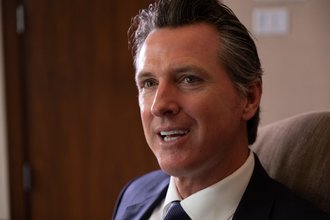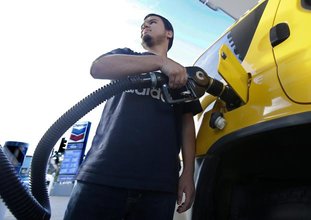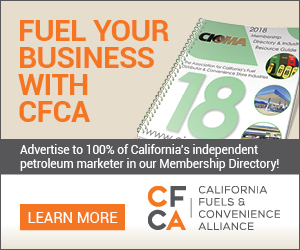CFCA would like to extend a warm welcome to its newest members! Thank you for joining the CFCA family and we look forward to working with you on behalf of our industry!
T. A. Saleh Enterprises Inc.
Windstream Enterprise
BP Washington
It is with a heavy heart that CFCA announces the passsing of one of our own, Patrick Maniaci. Patrick was the grandson of longtime CFCA partner, Dan Maniaci, and a regular face at our Derbies and POC's over the years. Patrick loved CFCA's events and his presence at them made them brighter every year.
In his memory, his family has set up a donation page to give to the Center for Learning Unlimited (CLU) in his honor. CLU is a WASC accredited, specialized day school in Torrance that serves both publicly and privately sponsored students with unique, complex learning challenges. CLU was near and dear to Patrick's heart for all the ways they helped him through the years.
|
| | 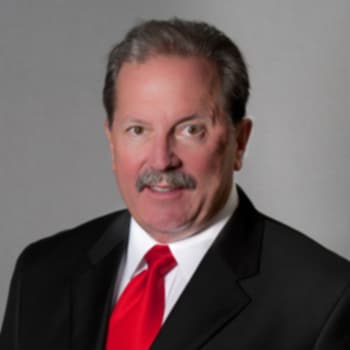 |
It is with deep sorrow that we inform you of the passing of Frank P. Greinke. Frank, the son of the founder of Southern Counties Oil Co., Frank H. Greinke, and the much beloved owner of SC Fuels will be missed greatly.
After assuming the position of president of Southern Counties Oil Co. in 1987, Frank grew the company to over 900 team members with operations in 10 western states. His kind leadership and gentle disposition guided SC Fuels growth while still maintaining the family owned company values established by Frank’s father.
In addition, Frank had served as president of the Society of Independent Gasoline Marketers of America (SIGMA), Chairman of the Southern California Chapter of Young Presidents Organization (YPO), he was founding director of The New Majority Committee; an Orange County based Republican Party organization, and former Finance Chairman of the Orange County Republican Party. He was also on the Advisory Board for Solis Capital Partners and served on the Board of the Bank of Hemet and was a founding member of the Board of Directors for Pacific Ethanol Inc.
Frank was a strong supporter of CIOMA (CFCA) and its programs for decades, believing in the concept that a united community industry would be a stronger one.
Frank’s professional accomplishments paled in comparison to how he felt about giving back to the community. He was a director of the Tustin Boys and Girls Club, served on the Dean’s Advisory Board for Cal State Fullerton’s College of Business and Economics and the Advisory Board for Chapman University’s President’s Cabinet. He strongly supported community programs such as Mary’s Kitchen to help feed the homeless, supported employee blood drives, and set up programs within SC Fuels to encourage our team to participate in community programs.
Frank’s passion for business and community did not end at home, he had a deeply held passion for the Republic of Georgia. SC Fuels had the distinction of being the first company from the United States to do business in the Republic of Georgia. In 1992, Southern Counties Oil opened the first western-style gas station in the capital city of Tbilisi, just after Georgia became the first former Soviet Republic to become independent. Frank served as Counsel General [Hon.] for the U.S. West Coast for the Republic of Georgia.
Frank instilled the belief in us that a company is a family and he treated everyone at SC Fuels with honor and respect. He earned the love of our team and he will be missed by all of us.
In the days to come, we will communicate additional details regarding the family’s wishes for a memorial service.
|
CFCA's Executive Director and members are in Washington, D.C. this week to advocate on behalf of the fuels industry.
As California's representatives to the national level PMAA, those in attendance will be meeting with Congressional representatives to discuss this issues facing our industry.
Today, CFCA's members Matt and Judy Cullen, Jimm Cross, Tom Van De Pol, and Rusty Rinehart met with Congressman Doug LaMalfa to educate him on the important work being done by CFCA and our industry.
Check back next week for a recap on the meetings, and any news from PMAA.
|
Retail Petroleum Consultants, is the leading specialist appraisal firm for the going-concern valuation of gas stations, car washes, c-stores, QSRs, and other petroleum-related properties. With responsive national coverage, they have performed valuation services for over 7,500 properties throughout the United States. They’re continually leveraging our proprietary technology and expansive database to service top financial institutions, buyers, brokers, law firms, accountants, distributors, and leading oil companies.
Clients trust them for our time-exposed data & observations that span over a decade, detailed analysis & neighborhood descriptions, and a full parallax of value — litigation, insurable, projected theory, construction, sales reconciliation, etc. In addition, their clients enjoy same-day direct contact with their chief appraiser to address methodology and other nuances of the valuation.
|
Grants up to $10,000 are available for reusable transport packaging and other equipment for “rescuing surplus edible food”. More and more businesses have fallen under organic waste regulations leading to high costs of removing food that could be diverted to the less fortunate in our communities. Stop Waste has made funding available for reusable totes, pallets, and food storage equipment.
Applications are due May 13, 2019 and eligibility requirements can be found on the linked application:
http://www.stopwaste.org/sites/default/files/Stopwaste-WPE-grant-application-2019.pdf
For more information, visit their website www.stopwaste.org/at-work/stopwaste-grants/waste-prevention-equipment-grants or contact them at reusables@stopwaste.org or by phone (510) 891-6556
The CFCA Memorial Scholarship Fund provides financial assistance to help children and employees of CFCA members further their education and professional development. The deadline is June 2nd!
You can help support the fund or apply for the scholdarship by following the link below!
The California Department of Food and Agriculture’s (CDFA) Office of Farm to Fork is now accepting proposals for the new Healthy Stores Refrigeration Grant Program. The program will fund energy efficient refrigeration units in corner stores and small businesses in food deserts throughout the state to stock California-grown fresh produce, nuts and minimally processed foods – improving access to healthy food choices in the small retail environment for underserved communities, while promoting CA-grown agriculture.
CDFA seeks proposals from corner stores, small businesses; or cities, counties or nonprofits working with corner stores or small businesses to promote healthy retail. A total of $4,500,000 is available for grants.
Applications must be submitted by email to cafarmtofork@cdfa.ca.gov, no later than Thursday, April 25, 2019, 5:00 P.M.
|
The California Community Colleges invests in the state’s economic growth and global competitiveness through industry-specific education, training and services that contribute to a highly skilled and productive workforce. With over a $1 billion in investments in career and technical education and workforce development, the California Community Colleges is providing our state with a strong and well-prepared workforce to help our economy prosper.
Are you interested in learning more about the programs that are important to your industry? You can join as a public supporter of the California Community Colleges Doing What MATTERS for Jobs and the Economy and its Strong Workforce Program. There are many opportunities for your business including:
· Provide work-based learning experiences to give youth exposure to your company.
· Learn more about internship programs specific to your business/industry.
· Provide our faculty information on innovations and technologies important to your industry.
· Help shape and develop curriculum and programs important for your industry.
Attached is the employer engagement form that outlines multiple ways your business can engage with the California Community Colleges Doing What MATTERS for Jobs and the Economy and its Strong Workforce Program.
|
Since its inception, Trinity Consultants has been committed to providing superior professional training in environmental topics. Our annual schedule includes more than 200 courses, offered at locations around the country, on timely topics for environmental professionals such as environmental permitting, emissions quantification and reporting, air dispersion modeling, greenhouse gas emissions reporting and permitting, stack testing, and CEMS management.
In addition to our federally-based regulatory courses, we also offer a large slate of state-specific courses, bringing the added value of information on specific state and local programs and insights gained from our experience working with the local regulatory agencies.
Free CARB Regulatory Training in Your Area!
Do you own, operate, or dispatch heavy-duty diesel trucks in or to California? Then you need to know that the California Air Resources Board (CARB) enforces a set of air pollution regulations affecting all types of heavy-duty diesel vehicles operating in the State. If your vehicles are NOT already compliant, you need to know what to do to be compliant for 2019. And if your vehicles ARE compliant, you still may need to report to remain compliant. This course gives you the information you need about how to comply with CARB diesel regulations and how to report to continue operating legally in 2019 and beyond.
|
California regulators are overestimating the impact the state's cap-and-trade system is having on reducing greenhouse gas emissions, according to a new policy brief from a researcher at UC Berkeley's Center for Environmental Public Policy, part of the Goldman School of Public Policy.
In the paper, published Tuesday, research fellow Barbara Haya argues that the California Air Resources Board has made rosy assumptions about a program protecting forests that may only have accomplished 18% of the emission reductions it claims have been made.
The discrepancy could be as much as 80 million tons of carbon dioxide since 2013, which is equivalent to more than the total annual emissions from California's entire electricity sector.
|
Gas prices in Fresno and other markets in the central San Joaquin Valley ticked up by another few pennies per gallon over the past week, continuing an unrelenting two-month trend of rising fuel prices with which motorists continue to cope.
The average price for regular unleaded gasoline was reported at $4.08 per gallon on Monday in Fresno, according to AAA Gas Prices. That's a nickel more than pump prices a week ago and 43 cents higher than on April 6, one month earlier. Almost two months go, on March 11, the average price was $3.24 per gallon, or about 84 cents less than on Monday.
Statewide, the average pump price was $4.10 per gallon, up two cents from a week ago and 36 cents from a month ago. But there are signs that the increases are starting to level off. In San Francisco, the average price fell by almost six cents per gallon. In Los Angeles, Orange County, Riverside, San Bernardino and Ventura, the average prices either held steady or dropped by a few tenths of a penny.
|
Mayor Eric Garcetti unveiled a sweeping plan for a more sustainable Los Angeles on Monday, calling for dramatic changes to the car culture, built environment and air quality of America's second-largest city.
The mayor's sustainability plan imagines a city where, by the mid-2030s, 80% of the cars run on electricity or zero-emission fuel, 80% of the electricity comes from renewable sources and Angelenos drive 2,000 fewer miles each year than they do now. It's a far cry from today's L.A., where gridlock, tailpipe pollution and smoggy air have come to define a way of life.
Garcetti cited the “existential threat” of climate change, which scientists say is fueling bigger and deadlier heat waves, wildfires and floods in California and around the world. He said he worries that if Los Angeles doesn’t take aggressive action now, in 50 years the city will have little time for priorities other than survival.
|
Even in the best of California's economic glory days, no governor has entered office with the kind of fiscal tail wind that Gov. Gavin Newsom now enjoys.
The government's coffers are full of taxpayer cash, its reserve accounts are stocked to weather an economic slowdown and there's general consensus on new help for the state's youngest and most vulnerable residents. A major political victory would seem all but assured as he prepares to unveil a revised state budget this week.
And yet, Newsom's very real challenge is a quandary of quantity: more tax revenue, yes, but also more Democrats in the Legislature after last year's election landslide and more demands to raise spending.
|
Too many residents of the Golden State are forced to choose between filling up the gas tank or putting food on the table. Some families are unable to travel and have adventures with their children on the weekends. In order to find affordable housing, often times working families have to live far from the city, paying outrageous costs just to commute. College students cannot afford gas to make the trip home to visit their families. Seniors living on fixed retirement incomes in rural areas are struggling to afford fuel to critical doctor appointments on a regular basis.
Californians from every corner of the state are struggling to afford the high cost of gasoline. In many places, the cost of fuel is now over $4 a gallon. The governor has responded to this crisis by requesting an investigation led by the California Energy Commission as to why fuel costs are so high. Using taxpayer dollars to fund this investigation is a waste of money.
|
If you are concerned about climate change, you are likely enthusiastic about renewable fuels, such as solar and wind, and about laws that require their use. For example, the Green New Deal calls for "meeting 100 percent of the power demand in the United States through clean, renewable, and zero-emission energy sources."
Unfortunately, new research shows that renewable-fuel mandates are an unusually expensive way to reduce greenhouse-gas emissions. The expense comes in the form of increased electricity prices, which are a particular problem for low-income consumers.
A strong majority of states now have "renewable portfolio standards," which require that a specified percentage of the electricity supply must come from renewables. In California, the 2030 target is 60 percent. In New York, it is 50 percent.
|
|

 Member News
Member News Member Benefits
Member Benefits Education
Education Industry News
Industry News


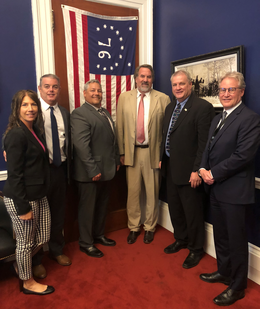



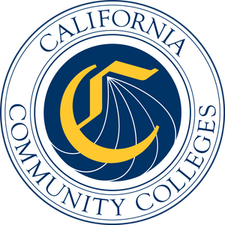



.png)








